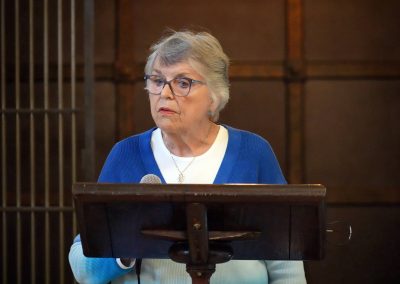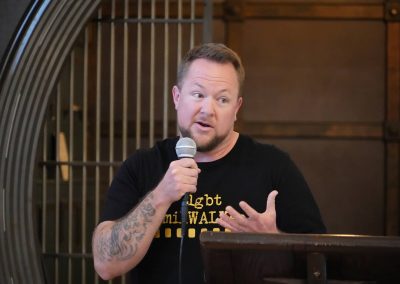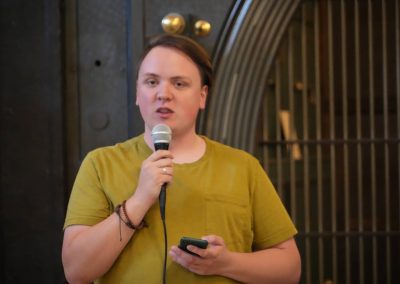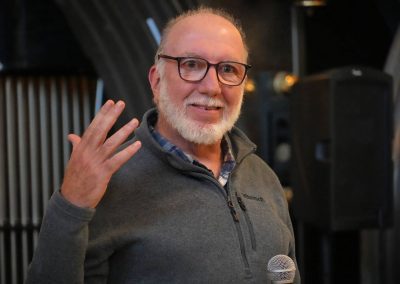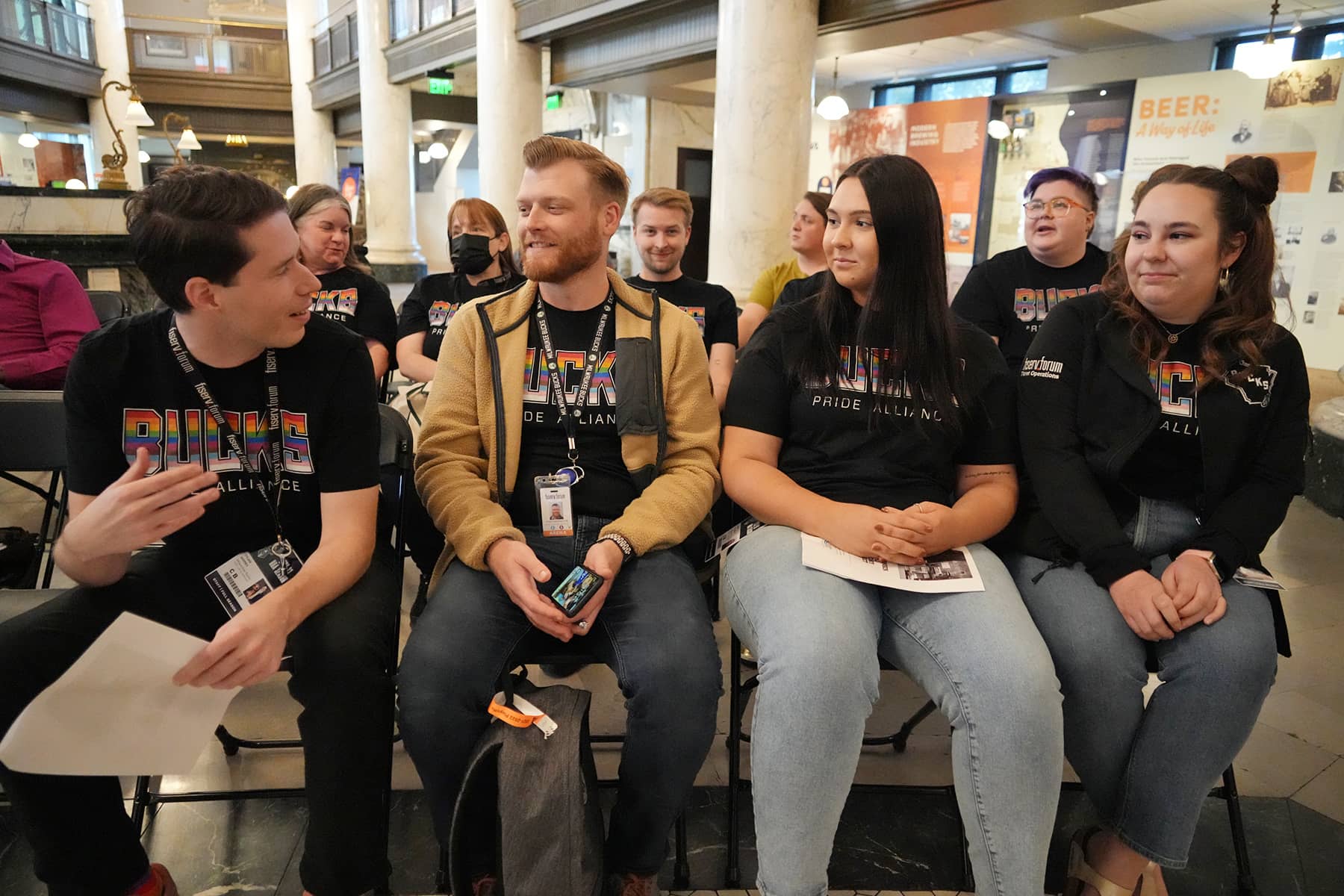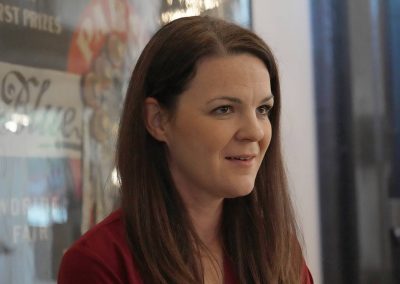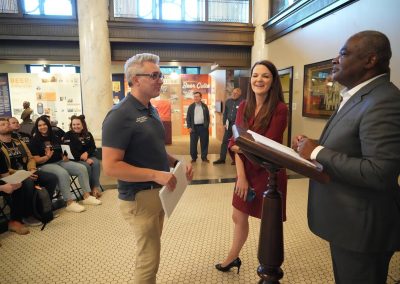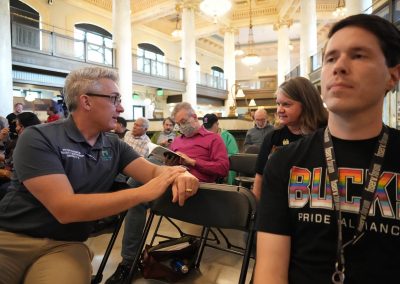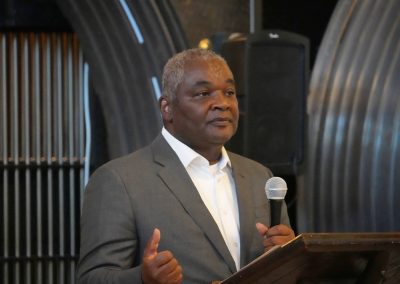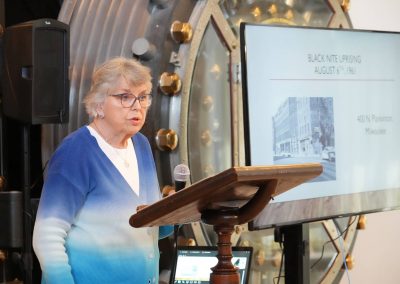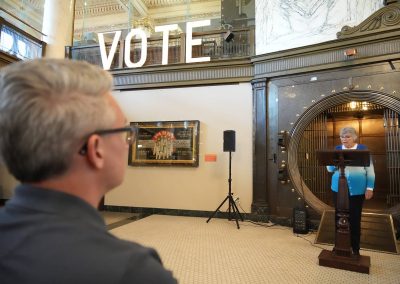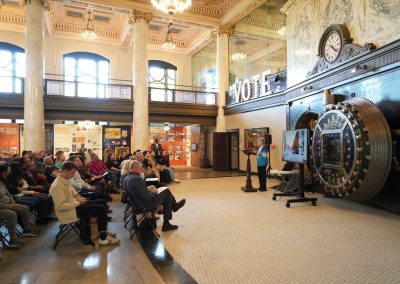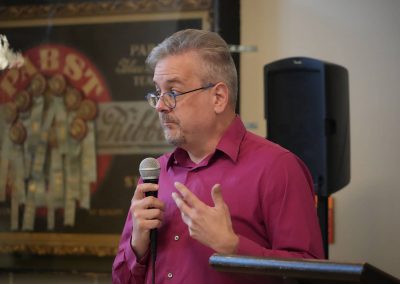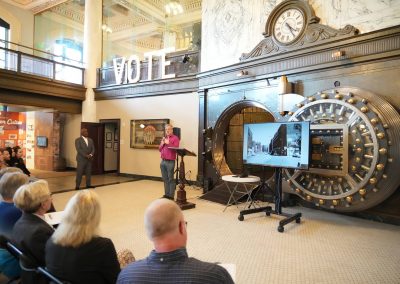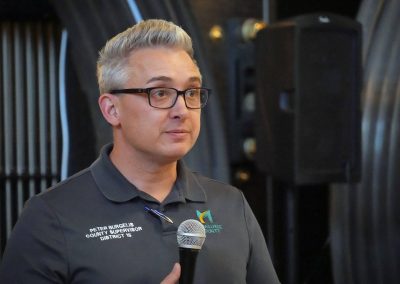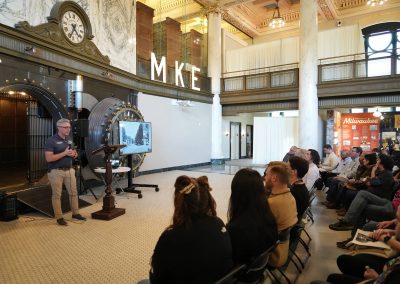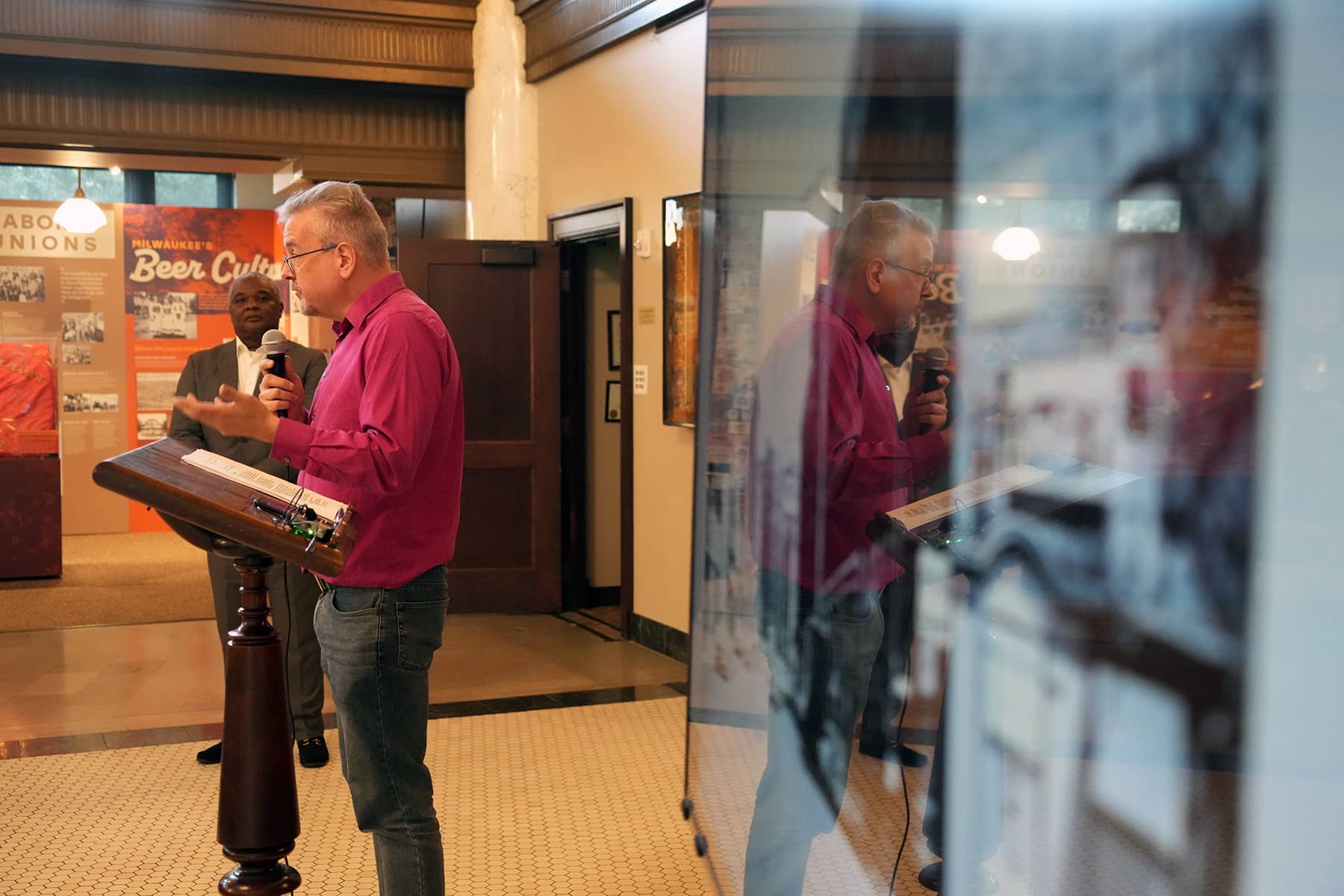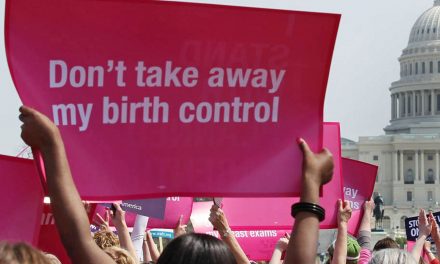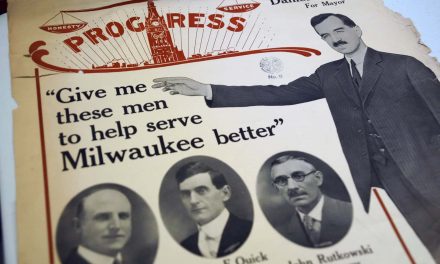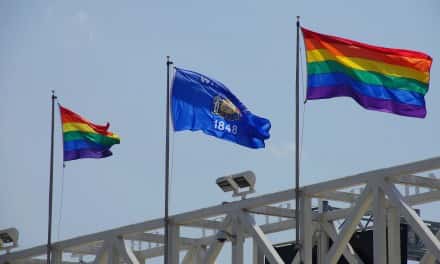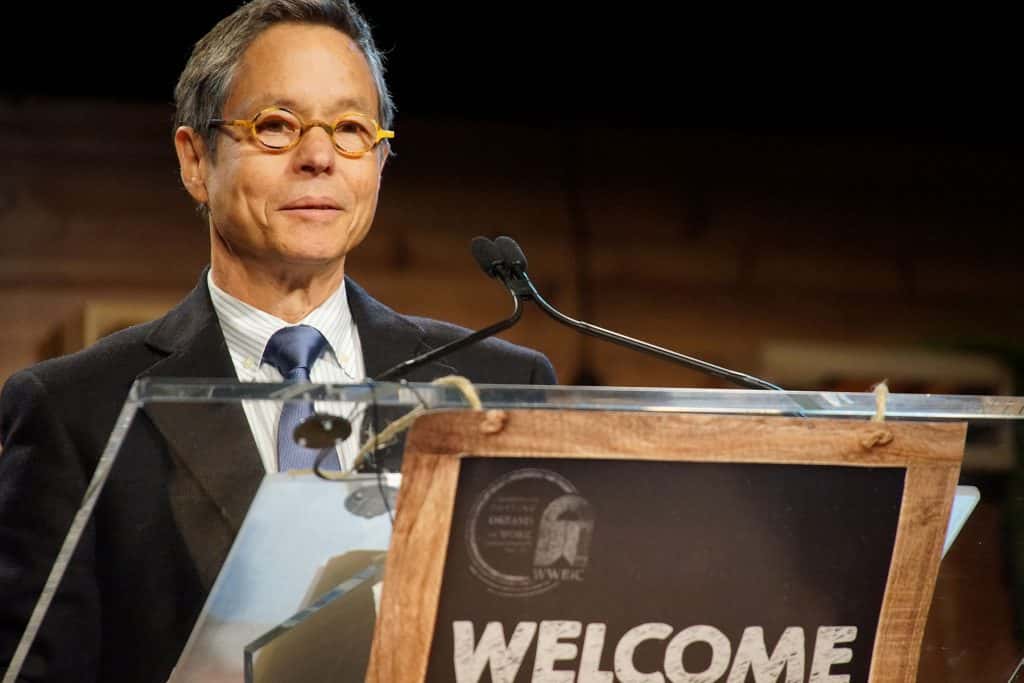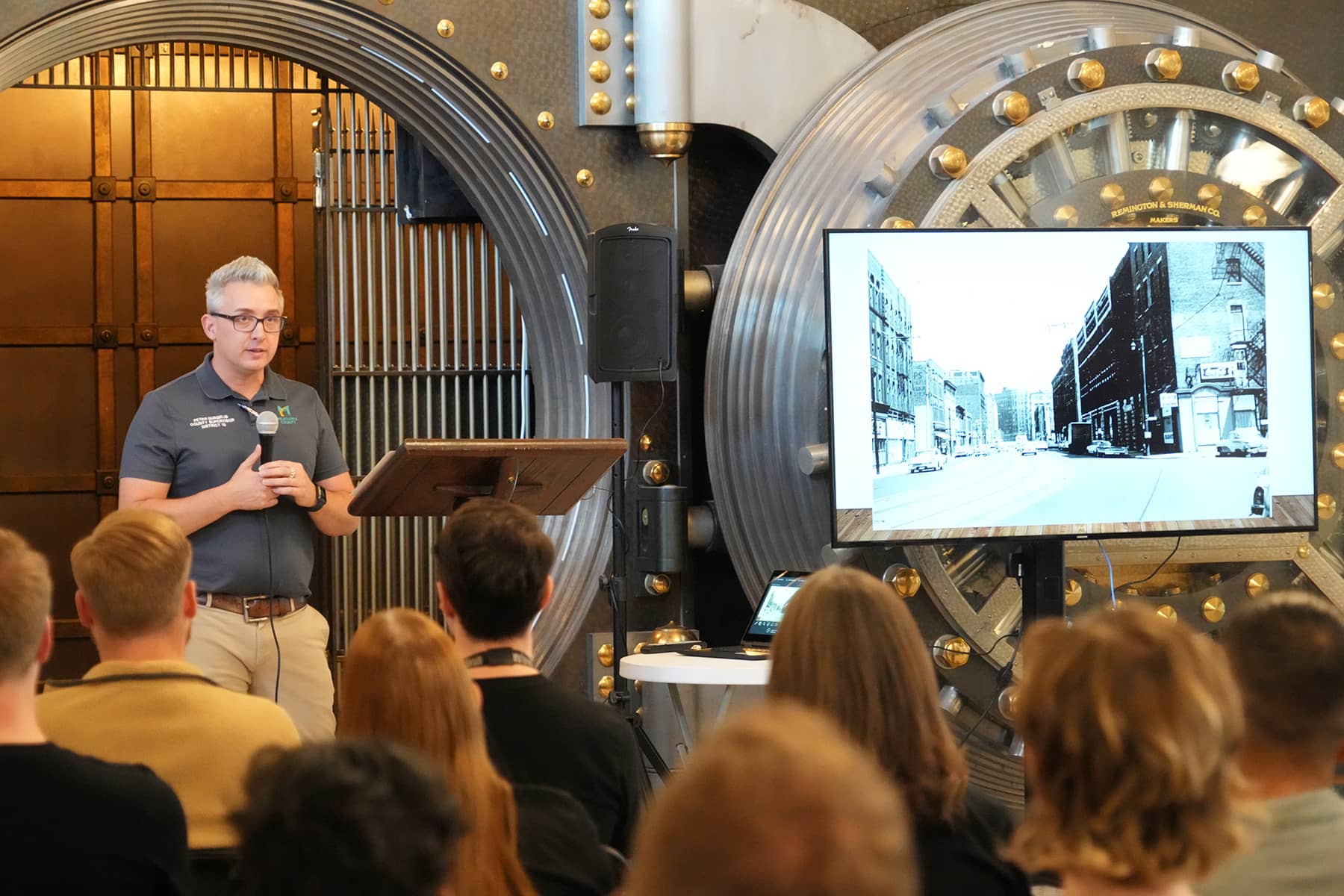
The Milwaukee County Landmarks Committee unanimously approved a historic landmark designation on November 14 for the site of the Black Nite Uprising at 400 N. Plankinton Avenue, the location of the first documented act of LGBTQ resistance in Wisconsin history.
The designation became the first official historical monument, marker, or memorial in Wisconsin to be devoted to the history of LGBTQ people. The commemoration also honored the leadership of Josie Carter, a black woman of trans experience and a local nightlife persona for over six decades.
“This is a moment of victory,” said Michail Takach, curator of the Wisconsin LGBTQ History Project, who submitted the application for historic designation in May 2021. “But the victory doesn’t belong to us. It belongs to a generation of people who never saw themselves as heroes, because the world treated them like criminals and deviants. They never expected to be remembered, much less celebrated. Through this historic landmark, we can make sure they will always be seen for the heroes they were.”
County landmark status is honorific and educational. The process does not impose any restrictions on the property or its owners, nor does it incur any additional costs for the property, city or county.
The Black Nite Uprising of August 5, 1961 was the first time in Wisconsin history that gay, lesbian, and gender non-conforming people came together to take action against homophobic and transphobic violence as one united community. The event happened nearly eight years before the Stonewall Uprising, long bookmarked as the start of LGBTQ history.
Led by Carter, the Uprising was an intentional, inspired, and coordinated response against homophobic harassment and violence at the Black Nite nightclub, one of the few spaces that allowed trans clientele in the state.
Unlike other early LGBTQ historical events, the Uprising was well-documented by police records, reported by local media, and archived by future gay rights activists like Eldon Murray and Alyn Hess. At a time when most LGBTQ people were told they had no history, heritage, culture, or even a right to exist, the Uprising caused a great awakening for the community.
“The Milwaukee County Landmark Committee acknowledged the vibrant history of Milwaukee County’s LGBTQ community,” said County Supervisor Peter Burgelis. “Historic landmark status for the site of the Black Nite Uprising celebrates the brave individuals who fought against hate. Before this decision, Milwaukee County currently has zero historically designated LGBTQ landmarks.”
Last year, the Milwaukee County Board of Supervisors adopted a resolution declaring August 5, 2021, Black Nite Brawl Day and requested the Milwaukee County Historical Society honor the site of the Black Nite Brawl as a historical monument.
Supervisor Burgelis, along with Supervisors Felesia A. Martin, Steven Shea, Ryan Clancy, Shawn Rolland, Liz Sumner, Juan Miguel Martinez, and Chairwoman Marcelia Nicholson, sent a letter to the Landmark Committee in support of the designation.
“Since 2019, Milwaukee County has committed itself to health equity for all its residents. Just weeks ago, we adopted legislation recognizing the effect of intersectionality on individuals facing discrimination and promoting intentional LGBTQ inclusivity initiatives. In this spirit we believe it is imperative that Milwaukee County have at least one historically designated LGBTQ landmark.”
The Uprising triggered a chain reaction of sociocultural changes in Milwaukee, leading to an acceleration of LGBTQ culture, community, liberation and activism – much earlier than most American cities. It culminated in the historic “first” achievements of Gay People’s Union throughout the 1970s, and the passage of the first-in-the-nation Wisconsin Gay Rights Bills of 1982 and 1983.
“With conservative political forces driven to erase LGBTQ history from all public education, including in Wisconsin, it has never been more important for historic heroism to be seen,” added Takach. “With the landmark designation, the next generation of LGBTQ leaders have a connection to a long, proud history – just as those who fought to defend the Black Nite on August 5, 1961 needed to connect as one community.”
The History Project continues to work with partner organizations to legitimize the Black Nite’s role in national LGBTQ history. For decades, the Library of Congress considered the Cooper’s Do-Nuts Riot of May 1959 as the first known LGBTQ resistance event in American history. However, researchers have debunked the story and a primary source recently recanted his testimony. As a result, the Black Nite gains national historic importance – as Milwaukee could become the recognized birthplace of LGBTQ pride in the nation.
“Would it surprise me if Milwaukee was the birthplace of queer liberation in America? Not at all,” said Bjorn Nasett a spokesperson for the History Project. “As a city of immigrants, a city of colorful cultures, and a city of diverse neighborhoods, Milwaukee has always been a city that defended its differences as much as it celebrated them. Throughout history, queer people have always been braver, bolder, and more visible in Milwaukee. We should all be proud to carry forward that tradition.”
For the next phase, a special committee has been formed to consider the design, development, and dedication processes for the physical landmark. Committee leaders have met with developers of the upcoming Foxtown Landing complex, the first redevelopment of the Black Nite site in nearly 60 years. The group hopes to create a Riverwalk destination landmark that is accessible, inclusive, meaningful and educational.
© Photo
Lee Matz

